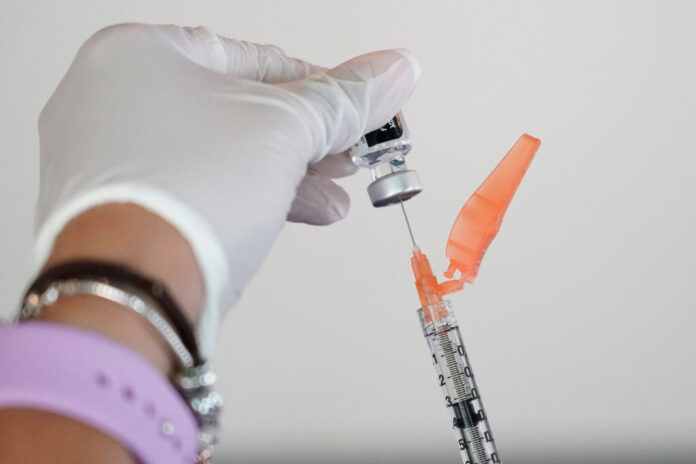
PROVIDENCE – The R.I. Department of Health on Friday said that Rhode Island, unlike neighboring Massachusetts, is not bypassing federal emergency use authorization that defines eligibility guidelines for COVID-19 boosters. But the end result in both states is similar, that nearly all adults are now eligible, the department said.
“We are not deviating from the emergency use authorization,” said Department of Health spokesperson Joseph Wendelken. “We follow federal guidelines on all vaccines. … We are administering COVID-19 booster doses in alignment with the current emergency use authorization that lays out the specific populations eligible for boosters. That being said, the [authorization] is quite broad.”
During a press conference updating state residents on the COVID-19 situation, however, R.I. Department of Health Director Dr. Nicole Alexander-Scott appeared to give the go-ahead to all adults in the Ocean State to get their booster shots, since “everyone 18 and older is at higher risk of exposure” currently due to the state’s high transmission rate. In the past seven days, there’s been 266.6 total new cases per 100,000 people, according the Department of Health.
“We want the message to go out that you can go ahead and get your booster shots,” Alexander-Scott said.
Alana O’Hare, a spokesperson for Gov. Daniel J. McKee, said Rhode Island acted more quickly this week than Massachusetts to let all adults in the state know that they could get their boosters during the Nov. 16 press conference. The reason she says all adults can get their boosters is because of the state’s high transmission rate, rather than the rationale presented by Mass. Gov. Charlie Baker that the federal guidelines are confusing and all adults are better off with boosters, anyways.
She said state officials also expect an announcement soon from the U.S. Centers for Disease Control and Prevention that would open booster eligibility to all adults who’ve received their primary vaccine doses at least 6 months prior.
Baker announced on Thursday that all Bay State adults are now eligible for a COVID-19 booster six months after their first shots, despite federal guidelines that recommend a booster just for adults who work or live in “high-risk settings,” along with those with underlying medical conditions and anyone 65 years or older.
Other states that have announced they are allowing all adults to get their boosters, regardless of the federal eligible guidelines, include Arkansas, California, Colorado and New Mexico, along with New York City.
“It’s the same thing,” O’Hare said about Rhode Island’s approach to booster eligibility, compared to Massachusetts and other states. “All adults are eligible. … We announced that [on Nov. 16] because of our high transmission.”
Wendelken agreed that what Rhode Island is doing is effectively the same.
“For all intents and purposes, what we’re doing is very similar to what Massachusetts is doing,” Wendelken said. “The vast majority of Rhode Islanders are eligible.”
As for how Rhode Island is going to administer booster vaccines to all adults in the state, the state is relying on pharmacies and community clinics that have grown adept at getting shots into arms over the past year, while many of the mass vaccination sites that pumped out vaccines when they first became available this year are no longer operating. Wendelken said “there are so many more” community venues that are vaccinating than earlier in the year, alleviating the need for the many state-run mass vaccination sites that opened earlier this year in schools, churches and other community centers. (The 100 Sockanosset Cross Road mass vaccination site in Cranston remains open, he said.)
“We have the infrastructure we need right now to administer boosters,” Wendelken said. “We have a very significant footprint in terms of pharmacies. They are established health care facilities already out in the community. They are places people are familiar with.”
Marc Larocque is a PBN staff writer. Contact him at Larocque@PBN.com.












